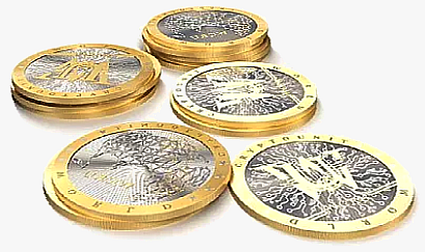Accredited InvestorsAltcoinAnatoli UnitskyAnti-Money Laundering (AML) In CryptoAPIArbitrageArtCoin TokenArticle DirectoryASICAuction Terminology GlossaryBasics of Stock Market InvestingBear MarketBest Crypto Payment Provider In the WorldBitcoinBlockchainBlockchain ConfirmationBlockchain Consensus MechanismBlockchain ForkBlockchain GlossaryBored Ape Yacht ClubBuild a Business That OutperformsBull MarketBuying SkyWay SharesByzantine Fault Tolerance (BFT) ExplainedCasascius CoinCentral Bank Digital Currency (CBDC)Centralized Crypto ExchangeCoinCoinsetCold WalletCollateralCommodity Futures Trading Commission (CFTC)Cross-Chain TechnologyCRUCrypto ExchangeCrypto GlossaryCrypto JokesCrypto Terms to KnowCrypto TickerCryptocurrencyCryptographyCryptojackingCryptounit BlockchainCryptounit GlossaryCryptounit ProgramdApp (Decentralized Application)Dead CoinDecentralized Exchange (DEX)Decentralized Finance (DeFi)Difference Between Bitcoin and EthereumDifferent Ways of Investing MoneyDigital CurrencyDistributed LedgerDo Your Own Research (DYOR)Dollar Cost Averaging (DCA)Dow Jones Industrial Average (DJIA)EncryptionERC-20ERC-721EthereumEvoScentFear Of Missing Out (FOMO)Fear, Uncertainty and Doubt (FUD)Fiat MoneyFNT Fintech CompanyGenesis BlockGlobal Unit PayGlossary of Banking TermsGlossary of Business TermsGlossary of Financial TermsHalvingHODLHot WalletHow Do I Start InvestingHow Rich is Satoshi Nakamoto?How to Create a BlockchainHow to Find Private InvestorsHow to Get Into FintechHow to Program Smart ContractsI Am Thrilled to Be a Part of This Global ProjectInitial Coin Offering (ICO)Initial Public Offering (IPO)Initial Token Offering (ITO)Innovation Basalt TechnologyInnovative Transportation TechnologiesInternational Bank Account Number (IBAN)Investing in Gold Mining StocksInvesting in Gold MiningJagerJoy of Missing Out (JOMO)Know Your Customer (KYC)LedgerLiquidity in CryptocurrencyMaker and Taker Fees in Crypto TradingMarket Capitalization (Market Cap)Meme CoinMetal Credit CardMetaMaskMillenials Now Have Access to Generational WealthMy Best Investment EverNew Digital EvolutionNFT GlossaryOff-Chain TransactionsOn-Chain TransactionsOpen Edition NFTPeer-to-Peer (P2P)Personal Loan GlossaryProbably the Best STO on the MarketProof of Stake (PoS)Real Estate Glossary of TermsReal Estate Investing GlossaryRebase TokenSecurities and Exchange Commission (SEC)Security Token ExchangesSecurity Token Offering (STO)Soulbound Decentralized Identities for Security TokensSoulbound ID Launch by Stobox Proves a SuccessSoulbound TokensStoboxStock Market GlossaryTestimonialsTether Platform and Token (USDT)UnitEx ExchangeUnitsky String TechnologiesUNTBUSDUValidatorWe Started Investing When We Were 25What are Blue Chip NFT?What are Blue Chip Stocks?What are Crypto Assets?What are Crypto Smart Contracts?What are CryptoPunks NFT?What are Digital Assets?What are Digital Collectibles?What are Gas Fees?What are Gas Wars?What are Hashmasks?What are Non Fungible Tokens?What are Non-Sufficient Funds (NSF)?What are Soulbound Tokens (SBT)?What are Stablecoins in Crypto?What are Transactions Per Second (TPS)?What are Utility NFTs?What are Utility Tokens?What Does Burning Crypto Mean?What Does Diamond Hands Mean?What Does Paper Hands Mean?What Does To The Moon Mean?What Does WAGMI Mean?What Happened to Satoshi Nakamoto?What is a 51% Attack?What is a Baby Boomer?What is a Backlink?What is a Banner?What is a Barcode?What is a Bid-Ask Spread in Crypto?What is a Block in Blockchain?What is a Block Reward?What is a Blockchain Address?What is a Blockchain Node?What is a Blockchain Oracle?What is a Blog?What is a Bond?What is a Bot?What is a Broker?What is a Business Accelerator?What is a Cash Cow?What is a Commercial Bank?What is a Commodity?What is a Con?What is a Credit?What is a Credit Limit?What is a Credit Rating?What is a Crypto Airdrop?What is a Crypto Bridge?What is a Crypto Scam?What is a Crypto Token?What is a Crypto Wallet?What is a Crypto Whale?What is a Crypto Winter?What is a Cryptocurrency Public Ledger?What is a Cryptocurrency Roadmap?What is a DAO?What is a Dark Pool?What is a Day Trader?What is a Dead Cat Bounce?What is a Default?What is a Derivative?What is a Digital Credit Card?What is a Fiscal Quarter?What is a Fungible Token?What is a Governance Token?What is a Grace Period?What is a Hard Fork?What is a Hot Wallet?What is a Hybrid Blockchain?What is a Hybrid PoW/PoS?What is a Joint Account?What is a Market Cap?What is a Merkle Tree in Blockchain?What is a Mining Farm?What is a Nonce? What is a PFP NFT?What is a POS System?What is a Prepaid Card?What is a Private Blockchain?What is a Private Key?What is a Public Blockchain?What is a Public Key?What is a Reserve Currency?What is a Ring Signature?What is a Routing Number?What is a Rug Pull in Crypto?What is a Safe Deposit Box?What is a Satoshi?What is a Security Token?What is a Seed Phrase?What is a Shitcoin?What is a Sidechain?What is a Soft Fork?What is a Spot Market?What is a State Bank?What is a SWIFT Code?What is a Tax Identification Number (TIN)?What is a Time Deposit?What is a Transaction Account?What is a Variable Interest Rate?What is a Virtual Assistant (VA)?What is a Virtual Card?What is a Virtual Currency?What is a Visa Card?What is a Whitelist in Crypto?What is a Whitepaper?What is Accounts Payable (AP)?What is AMA in Crypto?What is Amortization?What is an Accrual?What is an ACH Transfer?What is an Actuary?What is an Addendum?What is an Algorithm?What is an Angel Investor?What is an Annuity?What is an Asset?What is an ATM?What is an Atomic Swap?What is an Audit?What is an Avatar?What is an EIN?What is an Embargo?What is an Entrepreneur?What is an IDO (Initial Dex Offering)?What is an Interest Rate?What is an Internet cookie?What is an Investment Bank?What is an NFT Drop?What is an NFT Floor Price?What is an Ommer Block?What is an Orphan Block?What is an Outstanding Check?What is an Overdraft?What is Artificial Intelligence (AI)?What is B2B (Business-to-Business)?What is B2G (Business-to-Government)?What is Bartering?What is Bitcoin Dominance?What is Bitcoin Pizza Day?What is Blockchain Immutability?What is Blockchain Used For?What is BRICS?What is Business-to-Consumer (B2C)?What is C2C (Customer to Customer)?What is Capitalism?What is Catfishing?What is CFD Trading?What is Check Kiting?What is Cloud Mining?What is Communism?What is Content Marketing?What is Decentralization in Blockchain?What is DeFi in Crypto?What is Delisting?What is Depreciation?What is Digital Marketing?What is Diversification?What is Double Spending?What is Dumb Money?What is Dumping?What is Earnings Per Share (EPS)?What is Economics?What is Email Marketing?What is Equity?What is Etherscan?What is Fintech?What is Foreign currency?What is Forex?What is Fundamental Analysis (FA)?What is GameFi?What is Generative Art NFT?What is Gwei?What is Hard Currency?What is Hash Rate?What is Hashing in Blockchain?What is Inflation?What is Initial Game Offering (IGO)?What is Interest?What is Interest Income?What is Mainnet?What is Mastercard?What is Metaverse in Crypto?What is Mining in Cryptocurrency?What is Minting NFT?What is Mobile Banking?What is Money Laundering?What is NFT Alpha?What is NFT Metadata?What is NFT Rarity?What is NGMI Meaning?What is Nominal Interest Rate?What is Online Banking?What is Open-End Credit?What is OpenSea NFT Marketplace?What is Personal Identification Number (PIN)?What is Play-to-Earn?What is Polygon?What is Proof of Authority (PoA)?What is Proof of Work (PoW)?What is Public Key Cryptography?What is Pump and Dump?What is Quantum Computing?What is Refinancing?What is Retail Banking?What is Ripple?What is Sharding?What is Slippage in Crypto?What is Smart Money?What is Solvency?What is Soulbound ID?What is SSL?What is Staking in Cryptocurrency?What is Technical Analysis (TA)?What is Testnet?What is the Ask Price?What is the Better Business Bureau (BBB)?What is the Bid Price?What is the Dark Web?What is the InterPlanetary File System (IPFS)?What is the Gold Standard?What is the Lightning Network?What is the Prime Rate?What is the Sandbox?What is the Secondary Market?What is the World Bank?What is Tier 1 Capital?What is Tokenomics?What is TRC-20?What is Universal Banking?What is Unspent Transaction Output (UTXO)?What is Usury?What is Volatility in Crypto?What is Wash Trading?What is Web3?What is Whisper?What is XRP?What is Zero-Knowledge Proof (ZKP)?Who is Beeple?Who is Satoshi Nakamoto?Who is Vitalik Buterin?Why Tokenization is a Safe HavenWhy You Should Try Your Hand at Trading
What is an IDO (Initial Dex Offering)?
- Home
- Crypto Glossary
- What is an IDO (Initial Dex Offering)?
ICO (Initial Coin Offering) was once a popular way of fundraising, but its reputation has been tarnished by a multitude of scams and failed schemes, causing the cryptocurrency community to lose faith in it.

To address these issues, a new fundraising model called the Initial DEX Offering has emerged.
What is an IDO (Initial Dex Offering)?
Initial DEX Offerings (IDOs) refer to tokens that represent any asset hosted on a decentralized exchange (DEX). When a project launches a token through a decentralized liquidity exchange, it is called an IDO. These tokens can represent anything from cryptocurrency to music albums, providing businesses with a tool to engage their communities and enrich their products and services while making informed decisions about their assets.
Unlike an initial public offering (IPO), investors in IDOs do not own any equity in the project. Instead, projects receive financing from individual investors, similar to how traditional startups receive venture capital before launching.
IDOs offer several benefits over ICOs and IEOs (initial exchange offerings), including immediate liquidity, immediate trading, and lower costs for listing. In contrast to centralized exchanges that impose strict rules, such as payment of a large sum or offering a portion of the tokens to the exchange, prohibiting the project from listing their token on competing exchanges, and having little control over the project's token sale parameters, IDOs offer a more cost-effective token sale and listing model. IDOs provide quick liquidity with little to no slippage through available liquidity pools in a DEX, relatively cheaper listing costs, and instantaneous trading, similar to IEOs.
Advantages of IDO
As token offerings have evolved, they have become more equitable and secure for investors. IDOs offer some distinct advantages that contribute to this trend:
- Avoidance of direct dealings with projects and trust in their smart contracts. A trustworthy IDO platform will have completed several successful sales. If the smart contracts are the same, some confidence in the offering can be gained.
- Immediate liquidity is available post-sale. IDOs use some of the funds raised to establish liquidity pools, creating a liquid market post-sale, which reduces slippage and volatility.
- Sign-ups are not necessary. To participate in the sale, all you need is a wallet and funds. This makes IDOs accessible to various types of users. However, the lack of Know-Your-Customer (KYC) or Anti-Money Laundering (AML) processes may also be seen as a drawback.
- IDOs are cost-effective and available to projects. It's often easier and less expensive for a small or lesser-known project to launch their token on a DEX than on a large centralized exchange.
- IDOs frequently include anti-whale measures, preventing any single investor from purchasing a significant number of tokens.
Disadvantages of IDO
Some of the strengths of IDOs can also lead to their weaknesses. These issues mainly arise from the decentralized and anonymous nature of IDOs.
- Lack of KYC or AML processes. Proper checks protect investors and projects. These measures help prevent the laundering of illegal funds and the evasion of economic sanctions. For instance, if the token is deemed a security, it may not be lawful to participate in IDOs in some countries.
- Less rigorous project due diligence. It's easier for an unscrupulous project to distribute their token via an IDO than through an IEO with a large, regulated exchange.
Tips for Safe Participation in an IDO Sale
To participate in an IDO, you'll need a compatible crypto wallet (like MetaMask), and some cryptocurrency to purchase the tokens and pay for transaction fees. As with any investment, there are steps you can take to protect yourself:
- Be cautious of fake subscription pages and make sure to use the correct link to subscribe to the IDO. Scammers may take advantage of the excitement and create fraudulent pages to steal your funds.
- Use a trusted DEX Launchpad such as PancakeSwap or BakerySwap to participate in the IDO. This will increase the chances of successfully receiving your tokens.
- Research the project thoroughly before investing. Consider the reputation of the team, whether the funds raised will be vested, and if there is an existing product.
- Read and understand the terms and conditions of the IDO. Tokenomics may vary depending on the project, so it's essential to know what you're getting into.
- Invest only what you can afford to lose. IDOs are still risky, and even with due diligence, you may still fall victim to a scam, fraud, or rug pull. Be mindful of your investments and only invest what you're willing to lose.
Related Articles

What is a Rug Pull in Crypto?
Typically, a DeFi project creates its token and provides liquidity to a DEX, which can be put into a liquidity pool paired with another established token, or sold in an Initial DEX Offering (IDO).

Initial Token Offering (ITO)
ITO is a type of fundraising mechanism that is used by companies to raise capital for their projects by issuing and selling digital tokens on a blockchain. ITO is similar to Initial...

Initial Coin Offering (ICO)
Typically, investors participate in Initial Coin Offerings in the hope and expectation that the coin and its accompanying firm will be successful, potentially resulting in...

Security Token Offering (STO)
Major banking institutions, such as JP Morgan, have already entered the blockchain space. More names will emerge as blockchain continues to play an increasingly important role in...
- Home
- Crypto Glossary
- What is an IDO (Initial Dex Offering)?